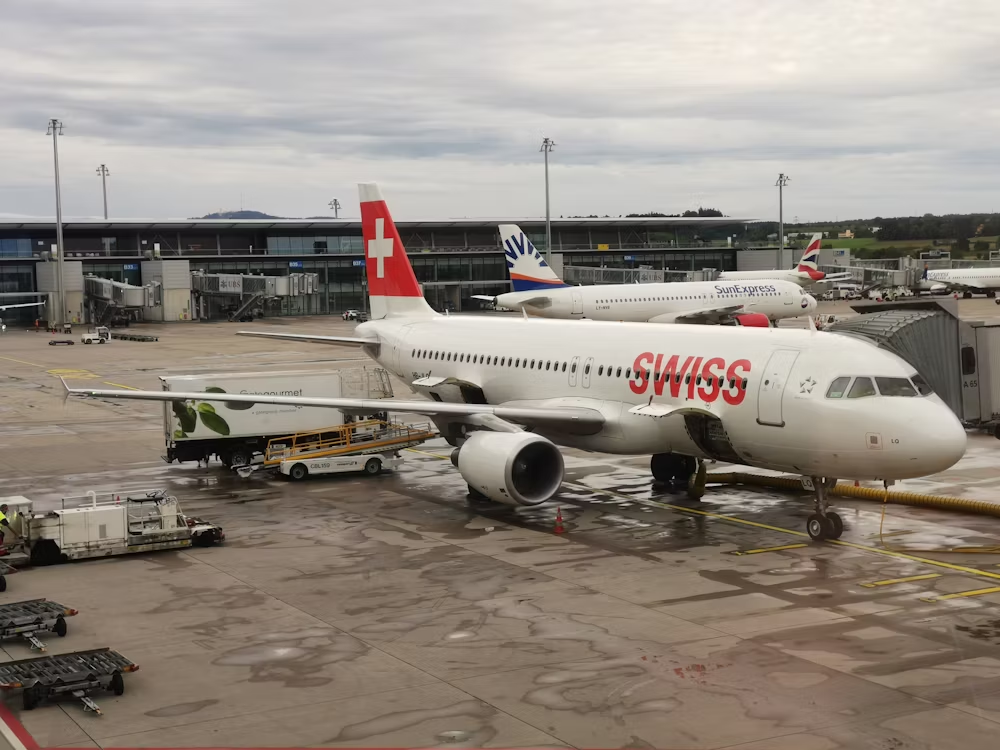The Good
- Learning from Mistakes: CrowdStrike’s promise to use this incident as a learning opportunity to “emerge better and stronger” suggests a commitment to improving their systems and protocols, which could lead to more robust cybersecurity measures in the future. This benefits not just their clients but also the wider community that relies on secure IT systems.
- Increased Awareness: The incident has highlighted the importance of cybersecurity and the need for robust IT systems, prompting businesses and governments to review and strengthen their own cybersecurity measures. This increased awareness can lead to a more secure digital environment globally.
- Customer-Centric Response: CrowdStrike’s Chief Security Officer, Shawn Henry, has openly acknowledged the firm’s failure and the pain caused to their customers and partners. This level of transparency and accountability is a positive sign, as it builds trust and shows that the company is taking responsibility and working towards rectifying the situation.
- Market Dynamics: The setback for CrowdStrike has allowed its competitors, like SentinelOne, to gain attention and market share. This competitive environment can drive innovation and improvements in the cybersecurity industry, ultimately benefiting consumers with better and more diverse options.
- Governmental Involvement: The involvement of government bodies, such as the UK’s National Cyber Security Centre and the US Transportation Secretary, in reviewing and addressing the issues caused by the outage demonstrates a proactive approach to mitigating the effects of such incidents. This can lead to better-preparedness and response strategies for future cyber threats.
- Economic Impact: While CrowdStrike’s shares have taken a hit, the company’s long-term prospects remain positive, according to analysts. This resilience and potential for recovery can reassure investors and stakeholders, maintaining economic stability within the tech sector.
The Bad
- Global Disruption: The incident caused a global IT outage, affecting 8.5 million Microsoft Windows computers and causing significant disruption to businesses, including critical sectors like aviation and healthcare. This highlights the vulnerability of our interconnected systems and the potential for widespread chaos from a single point of failure.
- Economic Losses: The disruption has led to substantial financial losses for affected businesses. For instance, Delta Airlines cancelled over 4,000 flights, resulting in massive revenue losses and additional costs for customer accommodation and refunds. Such financial impacts can have ripple effects across the economy.
- Reputation Damage: CrowdStrike’s reputation as a trusted cybersecurity firm has been severely damaged. This loss of confidence can lead to customer attrition and difficulty in acquiring new clients, affecting the company’s long-term business prospects.
- Operational Challenges: Businesses like Delta Airlines are facing immense operational challenges, with critical systems requiring manual repair and reboot. This has strained resources and led to extended downtime, affecting service delivery and customer satisfaction.
- Regulatory Scrutiny: The incident has drawn attention from anti-monopoly regulators and government bodies, which could lead to increased scrutiny and potential regulatory actions against CrowdStrike and similar large players in the cybersecurity market. This could result in stricter regulations and compliance requirements, adding to operational burdens.
- Customer Dissatisfaction: Many customers affected by the outage, such as Delta’s passengers, have faced significant inconvenience, with some stranded for hours and forced to make alternative travel arrangements. This dissatisfaction can lead to a loss of customer loyalty and negative public perception.
- Long-Term Trust Issues: The incident has shaken the trust in IT systems and cybersecurity measures, potentially leading to increased skepticism and caution among businesses and consumers when adopting new technologies or relying on existing ones.

The Gist
CrowdStrike, a leading cybersecurity firm, experienced a severe incident that caused a global IT outage affecting 8.5 million Microsoft Windows computers. The issue stemmed from a faulty content update and required manual reboots for many systems. The impact was widespread, disrupting businesses, including Delta Airlines, which had to cancel over 4,000 flights. CrowdStrike’s Chief Security Officer, Shawn Henry, expressed deep regret, acknowledging the failure and promising to use the incident as an opportunity to improve.
The outage has brought to light the vulnerabilities of interconnected IT systems and the significant disruptions that can occur from a single point of failure. Governments and businesses are now more aware of the importance of robust cybersecurity measures. The incident also led to a notable drop in CrowdStrike’s shares, though analysts remain optimistic about the company’s long-term prospects. Competitors like SentinelOne have gained market share, highlighting the competitive nature of the cybersecurity industry.
Delta Airlines continues to struggle with operational challenges, requiring extensive manual efforts to restore systems. The incident has also attracted regulatory attention, with calls for better preparedness and response strategies. Despite the immediate negative impact, the increased awareness and potential improvements in cybersecurity practices could lead to a more secure digital environment in the long run.

The Take
The recent incident involving CrowdStrike, a renowned cybersecurity firm, has sent shockwaves through various industries reliant on robust IT systems. The firm faced a major setback when a faulty content update caused a global IT outage, crashing 8.5 million Microsoft Windows computers. This incident serves as a stark reminder of the vulnerabilities inherent in our increasingly interconnected digital world.
Immediate Impact and Operational Disruptions
The fallout from the CrowdStrike outage has been significant. Businesses across the globe, including critical sectors such as aviation and healthcare, experienced severe disruptions. Delta Airlines, one of the most affected companies, had to cancel over 4,000 flights, with operational challenges continuing to plague the airline. The disruption required manual repairs and reboots, straining resources and impacting service delivery. Passengers were left stranded, some for hours, leading to widespread dissatisfaction and negative public perception.
Corporate Response and Accountability
CrowdStrike’s Chief Security Officer, Shawn Henry, addressed the incident with a high degree of transparency and accountability. In a LinkedIn post, Henry described the event as a “gut punch” and acknowledged the significant breach of trust with their customers. He emphasised the company’s commitment to learning from the incident and emerging stronger. This level of openness is critical in maintaining customer trust and demonstrates a proactive approach to crisis management.
Financial Repercussions
The incident has had immediate financial repercussions for CrowdStrike. The company’s shares plummeted by more than 13%, following an 11% drop the previous Friday. The financial markets’ reaction underscores the severity of the incident and its impact on investor confidence. Despite this, some analysts maintain a positive long-term outlook for CrowdStrike, citing the high switching costs and the limited number of viable alternatives in the cybersecurity market. Competitors like SentinelOne have benefitted from CrowdStrike’s misfortune, with their shares experiencing a notable surge.
Regulatory and Governmental Involvement
The widespread nature of the outage has drawn attention from regulatory bodies and government officials. In the UK, Cabinet Office Minister Ellie Reeves highlighted the need for better preparedness and response strategies for such events. The US Transportation Secretary, Pete Buttigieg, also expressed concerns over the incident’s impact on customer service, particularly with Delta Airlines. This regulatory scrutiny could lead to more stringent compliance requirements and operational burdens for cybersecurity firms.
Long-Term Implications
While the immediate impact of the CrowdStrike outage is undeniably negative, the long-term implications could foster a more secure digital environment. The incident has heightened awareness of the importance of robust cybersecurity measures and the need for businesses and governments to review and strengthen their IT systems. This increased vigilance can lead to more resilient infrastructure and better-preparedness for future cyber threats.
Industry Dynamics
The competitive nature of the cybersecurity industry has come to the forefront following the CrowdStrike incident. With rivals like SentinelOne gaining market share, there is a renewed emphasis on innovation and improvement within the sector. This competition can drive advancements in cybersecurity technologies, ultimately benefiting consumers with better protection and more diverse options.
Customer Impact and Response
The disruption caused by the outage has had a significant impact on customers, particularly those affected by flight cancellations and delays. Delta Airlines’ response, including efforts to rebook passengers and provide accommodations, has been critical in managing the situation. However, the extended downtime and operational challenges have tested customer loyalty and satisfaction. Ensuring timely and effective communication, as well as providing adequate compensation, will be crucial in rebuilding trust.
Lessons Learned
The CrowdStrike incident serves as a powerful lesson in the importance of cybersecurity and the potential consequences of system failures. Businesses must prioritise robust IT infrastructure and disaster recovery plans to mitigate the risks associated with cyber threats. Additionally, the incident underscores the need for ongoing vigilance and continuous improvement in cybersecurity practices.
Future Outlook
Despite the immediate challenges, CrowdStrike’s commitment to learning from the incident and improving their systems positions them well for future resilience. The increased awareness and proactive measures taken by businesses and governments can lead to a more secure digital landscape. While the road to recovery may be challenging, the lessons learned from this incident can drive positive change and strengthen the overall cybersecurity ecosystem.
Conclusion
The CrowdStrike outage has had far-reaching implications, affecting businesses and consumers worldwide. While the immediate impact has been negative, the incident has highlighted critical areas for improvement in cybersecurity practices. By addressing these vulnerabilities and fostering a culture of continuous improvement, the industry can emerge stronger and better prepared to face future challenges.




































































